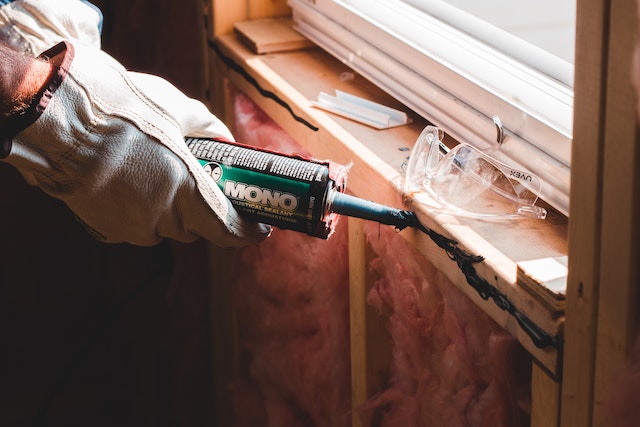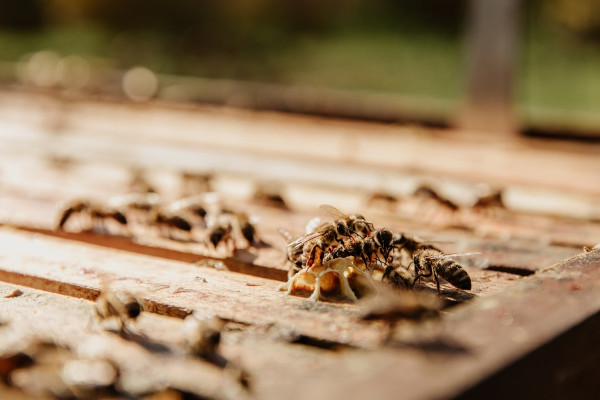Eco-friendly Pest Control Tips For Your Apartment
Living in an apartment can be a great experience - until you encounter pests.
Unfortunately, this is a common problem that apartment residents face. The use of chemical pesticides might seem like the easiest option, but it comes with its own drawbacks. The chemicals used in these pesticides can harm the environment and can also pose risks to human health.
If you're looking for some eco-friendly pest control tips for your apartment, you're in the right place. We'll tell you everything you need to know about getting rid of these unwelcomed roommates!
Eco-Friendly Pest Control Tips
As global warming continues to wreak havoc on our planet, more and more people are turning to eco-friendly alternatives to their daily routines. From composting to using reusable straws to recycling, every little action we take can make a significant difference.
Believe it or not, there are even eco-friendly alternatives for getting rid of pests in the home. Let's take a closer look!
1. Keep a Clean Living Space
A dirty and cluttered home is a breeding ground for pests, as they thrive in damp, dark, and untidy environments.
Keeping your home clean, dry, and well-organized is an excellent way to deter them from making your home their own.
Vacuuming regularly, wiping down surfaces, and sweeping away crumbs are all good steps to take when it comes to keeping pests away. Make sure your kitchen and pantry are clean, with dry goods and other foods stored in sealed containers.
2. Seal Entry Points
The best way to get rid of pests in your apartment? Make sure they can't get in there in the first place!
Take some time to identify any entry points where pests might enter. These can include gaps around windows and doors, holes in walls, and cracks in your foundation.
Once you have identified entry points, using the right material to seal them is important. For gaps around windows and doors, use weather-stripping. For holes and gaps, use caulking or steel wool to block them.
Regularly check your entry points to ensure they are still sealed. Over time, the weather-stripping or caulking may crack, allowing pests to enter. Reseal any gaps you find to ensure that the barrier remains intact.

3. Use Natural Repellents
There are all kinds of natural repellents you can try to keep pests out of your home.
For example, if you're dealing with an army of ants invading your home, try using mint to repel them. Ants hate the smell of mint, so you can place mint leaves or essential oil around areas where they like to enter. You can also try spraying a solution of peppermint oil and water around your home to deter them.
Another option is diatomaceous earth. Diatomaceous earth is a fine powder made from the fossilized remains of diatoms, a type of algae. This powder is abrasive to crawling insects like cockroaches and bed bugs, and it can kill them by drying out their exoskeletons. Simply sprinkle diatomaceous earth in areas where crawling insects are present to keep them at bay.
Citronella has long been used as a natural insect repellent, and it's especially effective for repelling mosquitoes. You can buy citronella candles, torches, and essential oil to keep these pesky bugs at bay. Simply light a few candles or torches around areas where you and your family like to spend time outdoors, or diffuse citronella essential oil in an oil diffuser.
4. Set Traps
Traps work by capturing pests alive, allowing you to release them back into the wild, unharmed. They are effective in catching rodents, insects, and other pests, and with proper placement, you can control pest infestations without causing any harm.
When it comes to setting up traps, one size does not fit all. There are various types of traps available in the market, ranging from snap traps to glue traps to humane traps, so it's crucial to select the right one based on the type of pest infestation you are dealing with. Snap traps are effective for mice or rodents, while sticky traps work best for catching insects like ants or spiders.
The placement of your trap is just as important as the type of trap you choose. If you're setting up a trap for a rodent, consider placing it along the wall as they tend to travel along the edges of the room. For insects, focus on areas that they frequent, like near food sources or damp areas.
Be patient! Trapping may take some time before it's effective. Make sure to keep an eye on the traps every couple of hours and dispose of the pests safely and responsibly.
5. Keep the Drain Clean
Pests like fruit flies and cockroaches are attracted to damp environments like drains. Make sure to regularly clean your drains using a mixture of baking soda and vinegar to keep them free from buildup.
6. Organize and Declutter
Another great way to keep pests at bay is to declutter regularly. Clean out your cabinets, closets, and drawers to get rid of old clutter and remove hiding spots for pests.
7. Consult With Your Landlord or Property Management
If you notice a pest problem in your apartment, it's important to notify your landlord or property management company as soon as possible.
They may have a pest control program in place that you can utilize, or they may be able to work with you to come up with an eco-friendly solution. It's always worth asking, as they may have more resources than you do when it comes to pest control. This is especially important if you're dealing with particularly harmful or dangerous pests, like stinging insects.

8. Have Regular Inspections
Lastly, it's important to have regular inspections to catch any pest problems early. Schedule an inspection with a professional pest control company every few months to ensure your apartment is free from pests.
A trained professional will be able to identify any potential issues and recommend eco-friendly solutions to keep pests at bay.
Final Thoughts
Eco-friendly pest control methods are not only better for the environment, but also for your health and well-being.
By following these simple tips, you can make sure that your apartment is a place you love to spend time in - but pests do not.